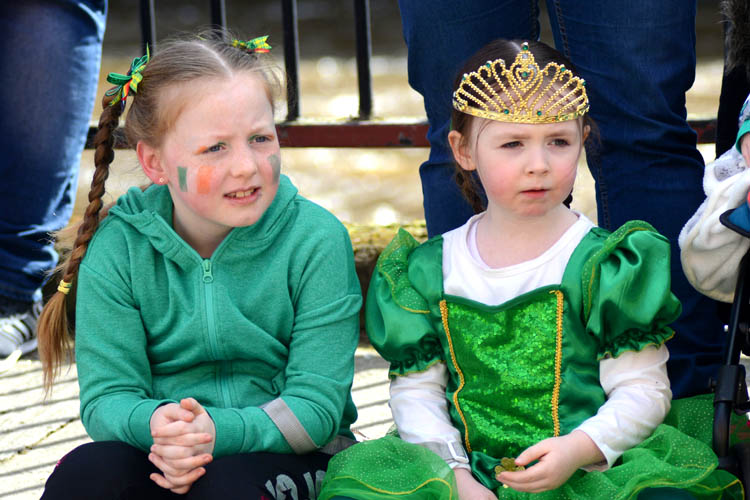Heroism of Irish soldiers in Congo recognised at veterans meeting in Drogheda
Front Page
Members of 35th Battalion pictured in the Congo in 1961.
A remarkable evening of remembrance and revelation took place at the Boyne Valley Hotel in Drogheda last night as retired Army Commandant Leo Quinlan, son of the late Commandant Pat Quinlan, delivered an inspiring talk on one of the most controversial and overlooked chapters of Irish military history—the Siege of Jadotville.
Organised by the Veterans Club of Ireland, this talk was the second in a series aimed at shedding light on the astonishing refusal by military authorities and the Irish Government to recognise 33 Irish soldiers recommended for medals following their heroic stand in the Congo in 1961.
Joe Lynch of the Veterans Club told us, ‘People around the world speak of the bravery of these Irish troops, some as young as 16, serving in difficult circumstances with inadequate armoury and supplies and yet they fought like tigers and showed the best of discipline, courage and comradery. We are lucky to have such a committed advocate for these men, in Comdt Quinlan.’
More than 60 years have passed since ‘A’ Company of the 35th Battalion, a force of just over 150 Irish UN troops, held out against an overwhelming force of over 3,000 Katangan soldiers and mercenaries in Jadotville. They fought bravely, using defensive tactics that have since been adopted into military textbooks worldwide.
Advertisement - continue reading below
However, despite their extraordinary resilience and resourcefulness, these soldiers were unfairly branded with the stigma of surrender and largely ignored upon their return home.
Commandant Quinlan’s talk brought the human stories behind this battle to life. The Irish troops, stationed in Jadotville, were under a UN mandate to protect the white Belgian population, only to find themselves unwanted and isolated.
On September 13, 1961, following a surprise attack by Katangese forces—backed by mercenaries from Belgium, France, and Rhodesia—the Irish defenders, led by Comdt Pat Quinlan, mounted a formidable resistance. Over the course of five days, they inflicted heavy casualties on the enemy while suffering no fatalities themselves, a testament to their exceptional training and leadership.
Despite their gallant stand, a lack of ammunition, food, water, and reinforcements ultimately forced them to accept a ceasefire, which later turned into captivity. After weeks as prisoners of war, they were finally released, only to return home to an indifferent Irish government and a whispering campaign that cast their surrender as a disgrace rather than a strategic necessity to save lives.

The tragic consequences of this neglect were deeply felt by many veterans, including Matt Quinlan, who had fought at Jadotville as a teenager. Recommended for a Distinguished Service Medal for his outstanding efforts in the battle, he never received formal recognition. Struggling with the trauma of his experiences and the unjust treatment he and his comrades endured, he emigrated and eventually took his own life in Australia. His story is just one of many that reflect the lasting psychological scars left of the battle and the subsequent betrayal by authorities.
It was only in recent years that efforts to rehabilitate the reputation of the Jadotville soldiers gained traction. The release of the Netflix film The Siege of Jadotville helped spark renewed interest in their story, and in 2017, the Irish government finally awarded a Presidential Unit Citation to the veterans of ‘A’ Company, 35th Battalion.
However, the fight for full recognition continues. As Commandant Leo Quinlan pointed out last night, despite the belated acknowledgment, no individual medals have yet been awarded.
At his talk in Drogheda he revealed that the Quinlan family have been offered and have refused to accept a DSM on behalf of their father as he would never have taken such an award ahead of his brave men. The talk served not only as a powerful reminder of their heroism but also as a call for justice, ensuring that the sacrifices and bravery of these forgotten soldiers do not continue to be overlooked.
Latest News
Recent News

Author with lifelong connections to Drogheda publishes his first book at 79

Drogheda Chamber members upbeat following Meeting with TDs and Senator

Planes, Trains and a Perfect Storm at Network Ireland Louth February event

Extinguishment of the Public Right-Of-Way at Omeath

Boyne AC make their mark at Rás Na hÉireann Cross Country 2025

Extinguishment of the Public Right-Of-Way Seaview Terrace, Dundalk

Information meeting for Louth / North-East Institutional Abuse Survivors

Comyn raises campaign for Drogheda City Status in the Senate

Minister ignores SOSAD’s appeals for emergency funding to avoid closure

Louth County Council - Temporary Road Closures

Saint Oliver 400 commemorative book launched in St Peter’s

Non-profit media team flying the flag for Drogheda in Europe


















